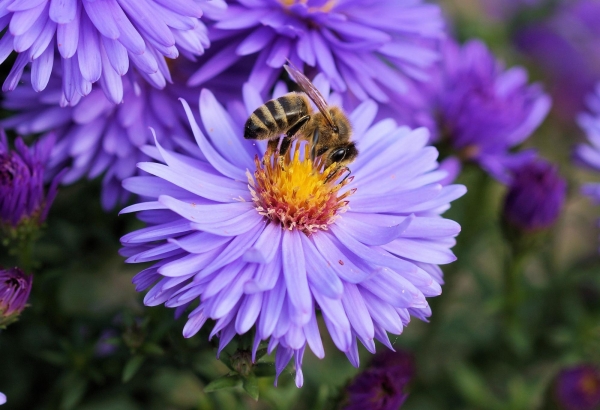A research team comprising the UK Centre for Ecology & Hydrology (UKCEH) and the Universities of Birmingham, Reading, Surrey and Southern Queensland, found that ozone substantially changes the size and scent of floral odour plumes given off by flowers, and that it reduced honeybees' ability to recognise odours by up to 90% from just a few metres away.
Ground-level ozone typically forms when nitrogen oxide emissions from vehicles and industrial processes react with volatile organic compounds emitted from vegetation in the presence of sunlight.
Professor Christian Pfrang from the University of Birmingham who collaborated on the research said: “Our study provides robust evidence that the changes due to ground-level ozone on floral scent cause pollinators to struggle to carry out their crucial role in the natural environment also with implications for food security.”
Read more at: University of Birmingham
Photo Credit via Pixabay


